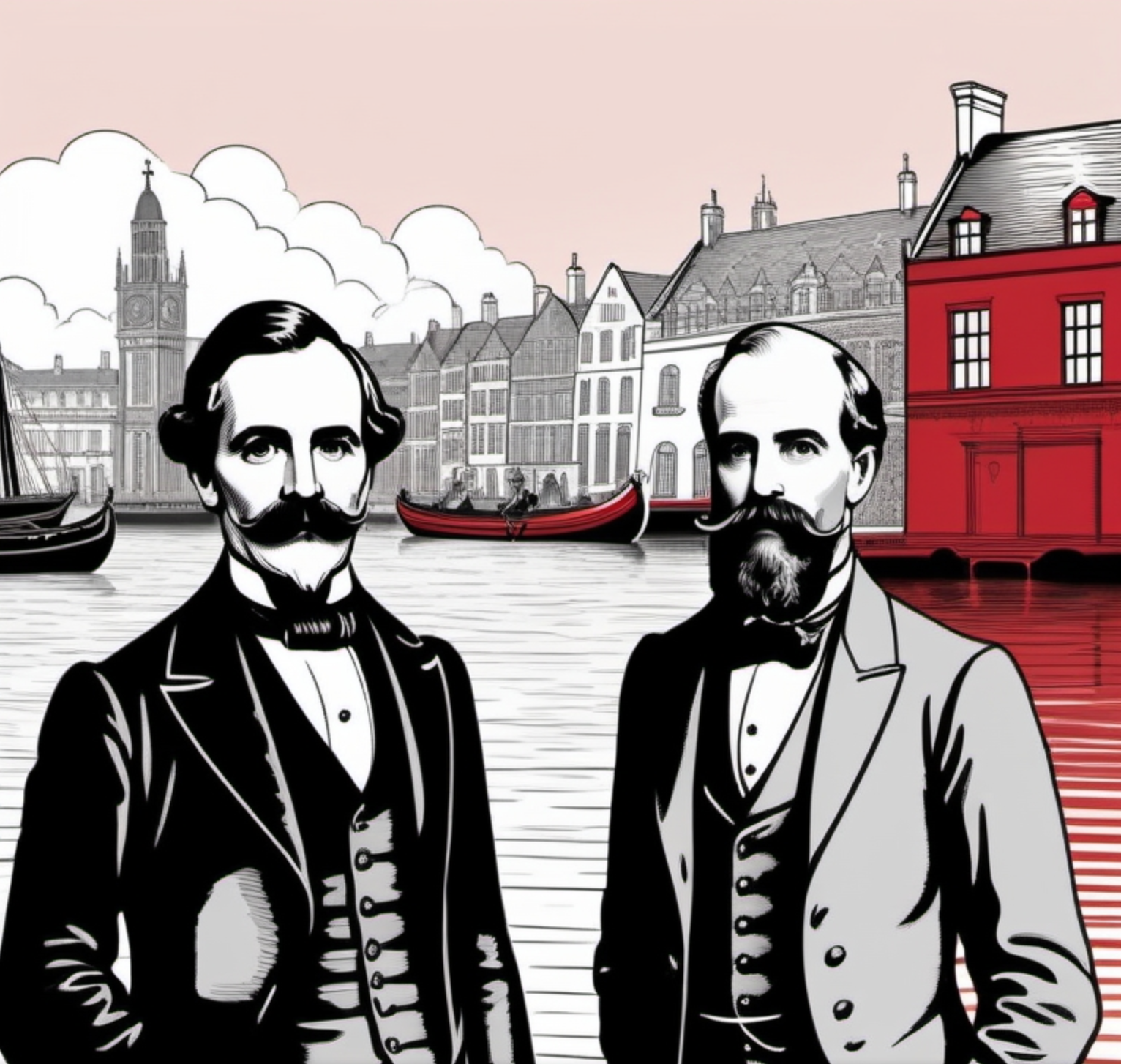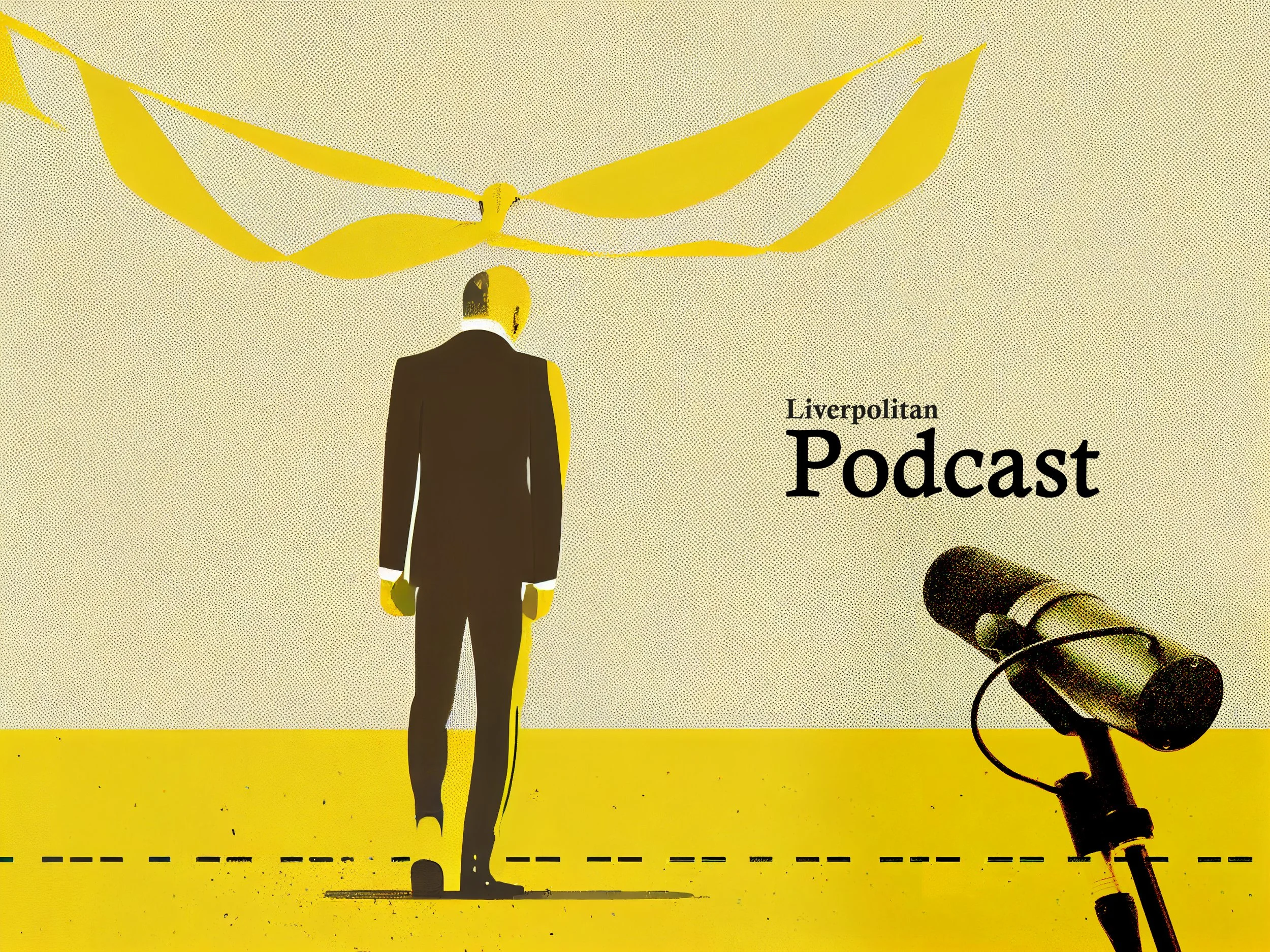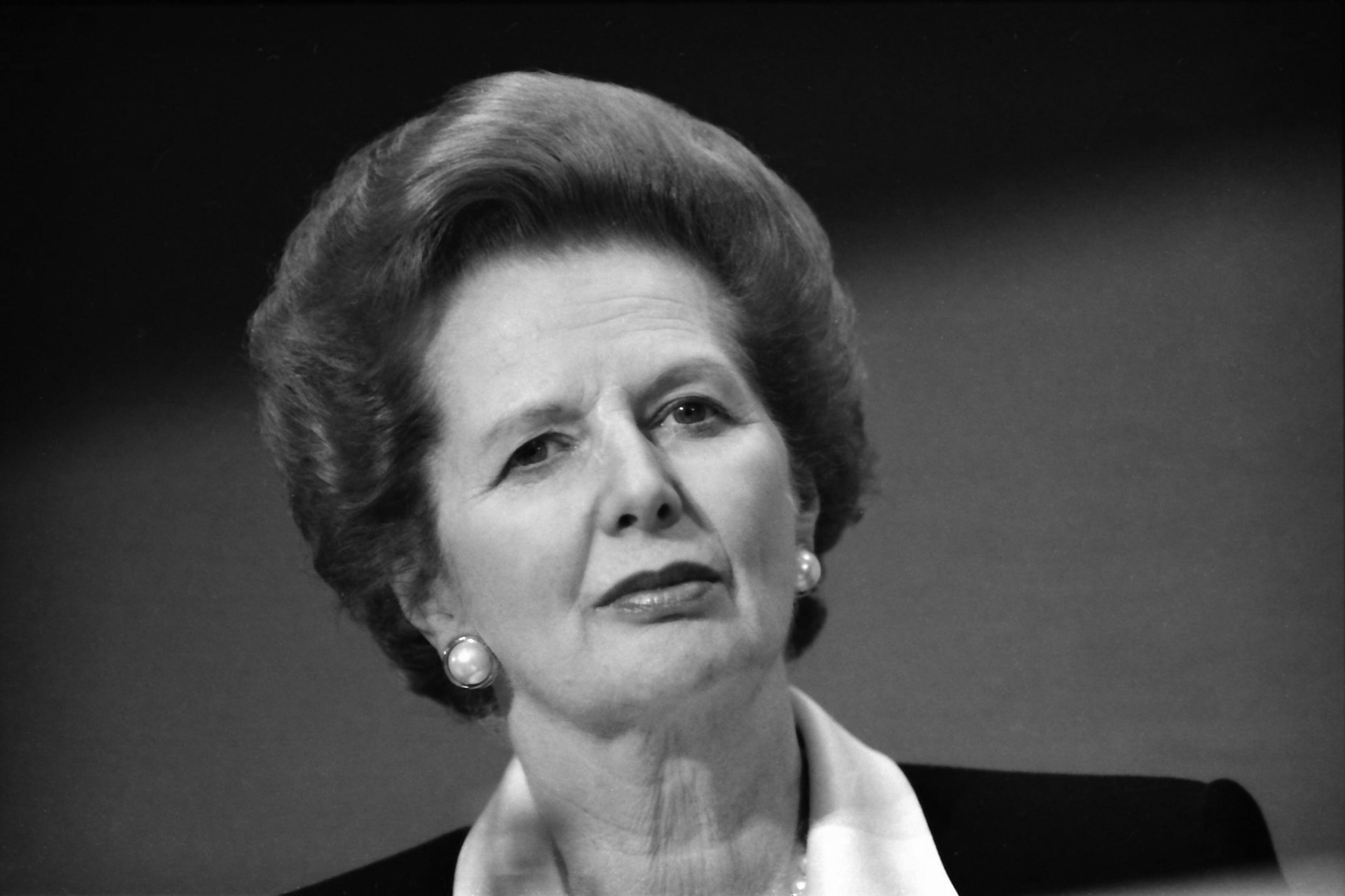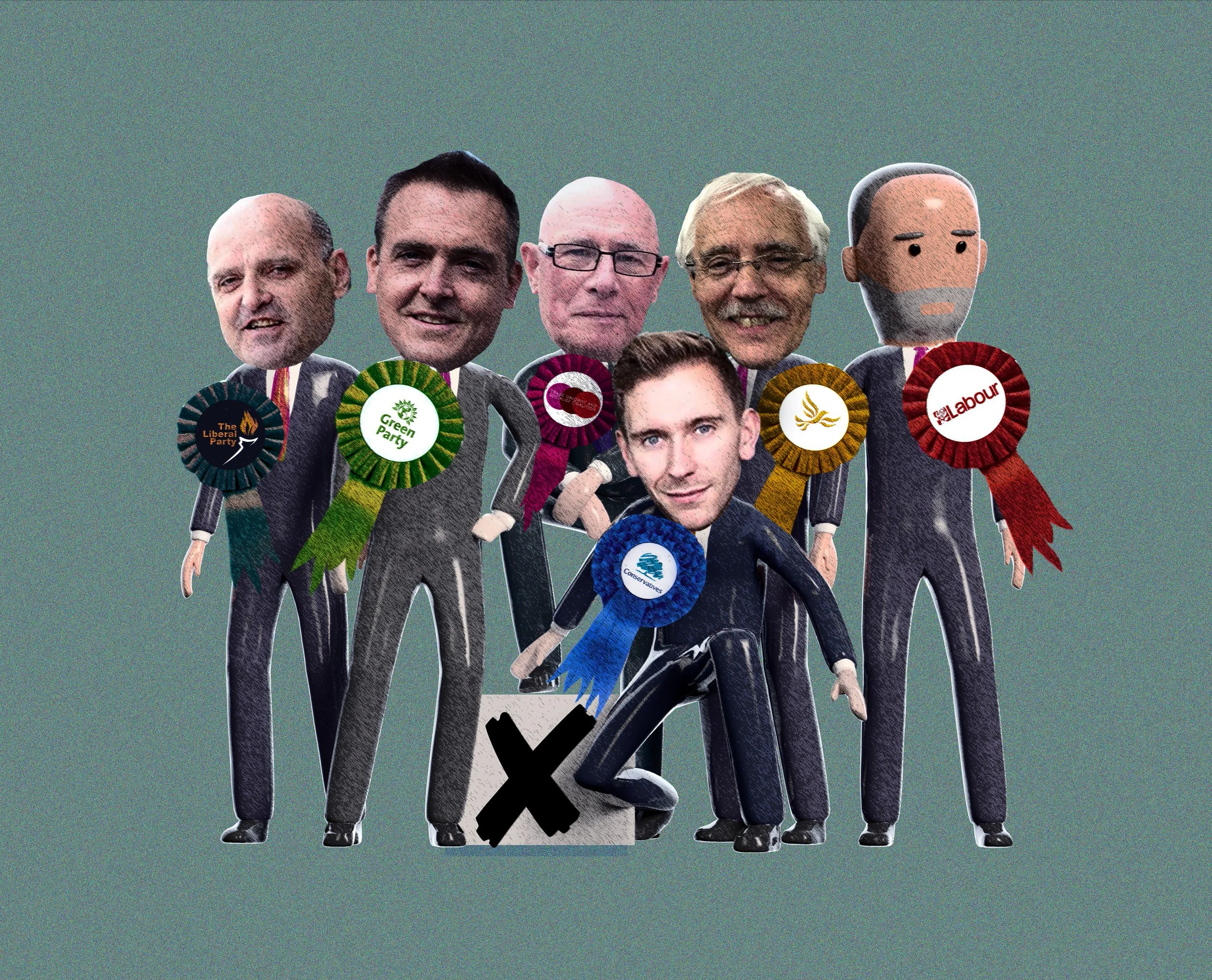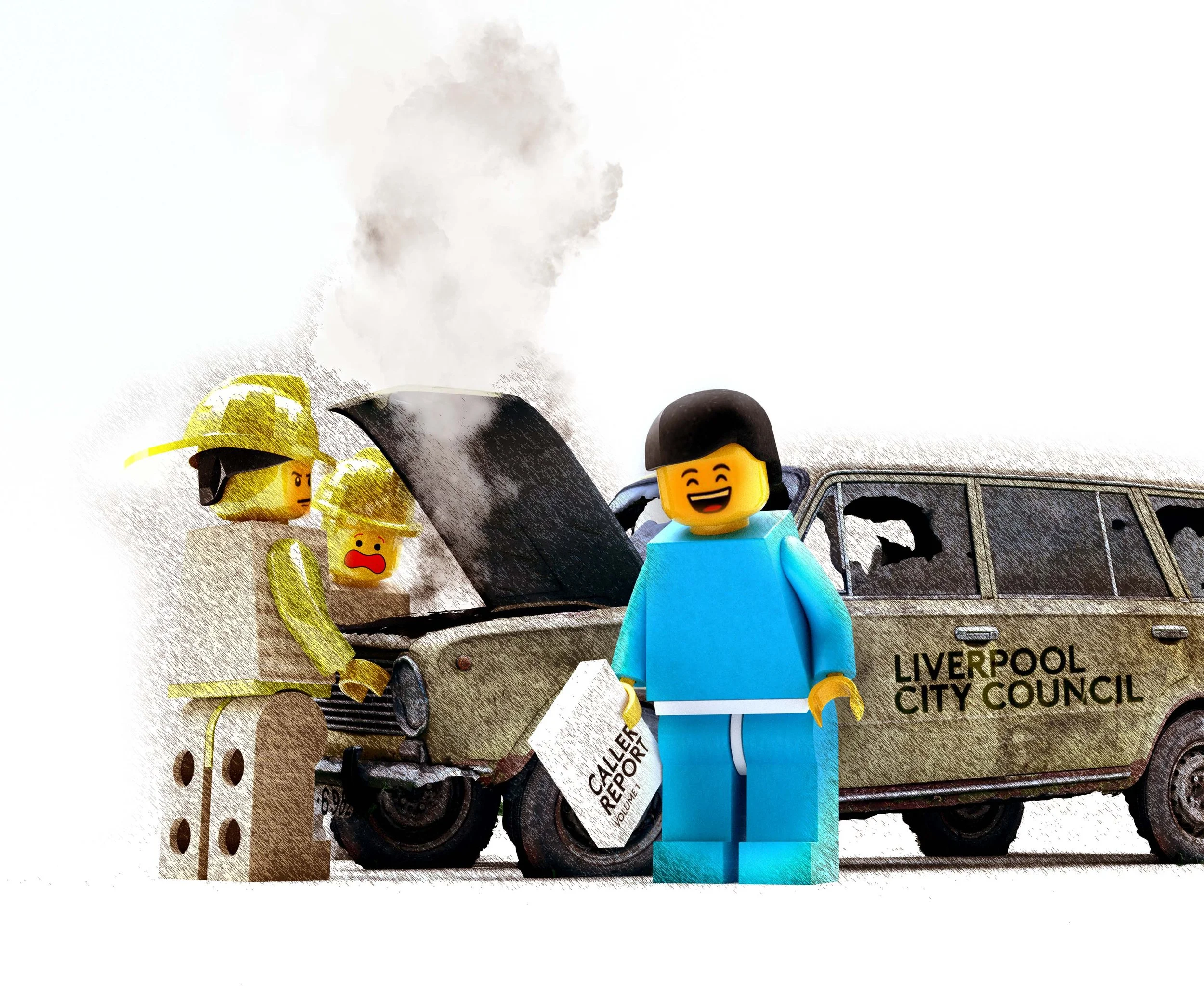Recent features
Face Value: What makes a good council?
Are diversity and representation the most important determinants of a good council? Reacting to our previous article, Child Labour, Liverpool’s Lib Dem Leader Richard Kemp, the city's longest standing councillor, leans on his years of experience to explain what he thinks makes for a successful council chamber.
Richard Kemp
There have been a lot of comments on the Liverpolitan Twitter feed recently after they published Child Labour, an article about the number of young councillors coming on to the scene in Liverpool.
I was struck by the defensive nature of some of them especially from those who had been elected as young councillors themselves. Yet no-one has suggested that young councillors are a bad thing. They can offer a viewpoint and an energy that older members of the chamber might struggle to bring. A good council will use the knowledge and energy of young people as part of a balanced team where their voices can be heard rather than dismissed as it so often is.
I thought that I might contribute to this discussion because although at 69, I’m clearly not a young councillor, I was once and my experience of moving through the ages might help the debate. I was first elected at 22, became the equivalent of a Cabinet Member at 24, and after 39 years in office, I’m now the longest serving councillor in Liverpool. In a variety of roles including as national leader of Lib Dem councillors I have supported elected members in more than 50 councils across the country so I’ve seen a lot of local government – both the good and the bad.
This experience does hopefully give me a long-term perspective from which to answer two related questions which I want to address - ’What should a good council look like?’ and ‘What does a good councillor look like?’
So to the first question. In a nutshell, a council should look as much as possible like the people of the area it represents. This applies both to the elected side of a council and also to its workforce, but in this article I’m just focusing on the elected side.
“When choosing candidates we have to be looking at factors like gender balance, ethnicity, age and class. Does what’s found in the chamber reflect what’s found out on the streets?”
Why is this important? Because having a diversity of councillors means that there is a diversity of knowledge and experiences within the council chamber. Different groups of people are impacted by decisions in different ways so having broad representation ensures that we keep our eyes open and our hearts sensitive to the different priorities of the groups that make up our population. That’s really important because even if our intentions are good as councillors we can’t presume we understand everything or even feel everything that is important to our electorate.
For example, I have never been discriminated against on the grounds of race, gender or sexuality. I can empathise with those who have and have a feeling for their challenges but I do not have that direct experience. Perhaps it’s the same with generational differences. I wasn’t born into the computer age, so I don’t have that instinctive feel that younger people do when discussing the challenges of technology, the industries of the future, the pitfalls of social media and issues around how we best communicate with each other. Ultimately, each person has their own stories to tell, and the better our representation, the more able we are to harness them to improve policies and more effectively monitor their success from different perspectives.
All of this means that when choosing candidates to stand for our parties we have to be looking at factors like gender balance, ethnicity, age and class. Does what’s found in the chamber reflect what’s found out on the streets? It’s worth looking at some of the available statistics. In Liverpool, according to the last census data 51% of our population are female and 49% male, while about 14% are from ethnic minorities including those born in other countries. A wide range of faiths are represented. Our population trends slightly younger than the national average with the under 30s clustering in the centre and average ages increasing as you move outwards especially to the north. When you start to look at profession and class, manual workers now make up a smaller proportion of our elected officials compared to when I first became a councillor, but that reflects changes in the city and society as a whole. The age of mass employment in big unionised factories like Tate & Lyle, Ogdens Tobacco, Dunlop, Courtaulds or, of course, the docks is long over, a decline which set in many years ago as computers and mechanisation took over.
Liverpool Council is currently completing a survey of councillors but the last one, conducted five years ago, showed that only 40% of elected members were female. However, the last five years has brought about a big change in that figure with Liverpool now one of the few councils in the country to achieve gender parity. We appear to have made less progress in other areas. Later this year we will have access to the first results from the 2021 National Census. This will provide us with the most up-to-date information about the make-up of the city’s population compared to that of its councillors. Those results should prove useful as we continue to try to improve representation.
Councillors from Liverpool and the Wirral had their say on our article, Child Labour
However, and this is an important point, diversity is not enough on its own. Having elected members that look like the community does not mean they’d make inherently better councillors. Being a councillor involves passion and compassion; with a strong civic desire to serve the community. It involves commitment. It involves hard work. Being who you are is only the start. It’s what you want to do and how you want to do that counts and it takes a council chamber full of people with vision and ability to make a good council that is both representative and capable.
If we turn our attention to the second question, ‘What does a good councillor looks like?’, we can see why the ideal council is difficult to create. Your average councillor has four calls upon their time. In addition to what can be the hard and demanding grind of the job of councillor, they also need to earn a living, care for their family and help run their political party which usually involves a lot of campaigning and canvassing. Juggling these different demands is a challenge and the level of difficulty lands differently on different people effected by things such as time of life, financial security, responsibilities for others and many other factors.
Being a councillor in a big city like Liverpool is a particularly arduous task if you do it properly and most councillors of most parties do. The life of a councillor involves attending council and committee meetings, keeping up-to-date with the constant stream of information and documents, coordinating with other councillors from your political group, and undergoing professional training when necessary. And all the while you are trying to weigh up matters, figuring out what decisions you have to take, and the need to make decisions is continuous. We then have to work within the communities that we represent, fact-finding and campaigning alongside the many volunteers who keep community life ticking over. For many of us council life is almost 24/7 and 365 days a year.
It’s worth noting that councillors do not receive a salary. Instead they receive a basic annual allowance which is worth £10,590 plus expenses. Those councillors who have additional responsibilities such as Cabinet members receive additional Special Responsibility Allowances (SRAs) but of course, many do not. This means, that most have no choice but to work for a living. Very few employers like the idea of a member of their staff being a councillor. The fact that we can legally demand unpaid time off to a certain level is unattractive to many which is why councillors often work for the public sector, unions or choose to be self-employed.
Outside of work, councillors have families and face the same pressures as the rest of the population. Those with added responsibilities such as caring for ageing parents or young children will inevitably have more on their plate than those who aren’t dealing with such issues. This is of course not unique to councillors but it’s worth noting because for some perfectly able individuals it can be an impediment preventing them from running for office or continuing their work once elected. In my experience, it’s easier to find the time to do things when you are a grandparent rather than when you’re weighed down with the challenges of parenthood.
Finally, all councillors except perhaps independents have to work inside their own political party undertaking political campaigning and policy development not only for local but also for national elections. What will surprise people who always think of us as politicians, is that party work often takes up a very small percentage of our time. More often than not, we tend to think of ourselves as councillors and not politicians.
All of these four factors intervene at different times to affect what we can do as councillors and even whether we can continue to do the job.
In future, if we want a more representative council we need as an organisation to understand the realities of these four competing pressures on councillors and provide support mechanisms to help people cope with them. For example, there’s a carers allowance whereby councillors with young children can get some support for childcare activities but none for those who have to care for relatives either older than themselves or those with physical or mental needs.
“The question of money gets raised from time to time. Some believe councillors should be paid more to attract better candidates. I don’t think that more money would actually change the makeup of the council, nor should it.”
I often mentor Lib Dem council groups and young people who are thinking of standing for office or even sometimes those who have been already been elected and they often ask me if I think being a councillor is a good idea. My answer is invariably, “Yes, but think through what that will mean to you and yours.”
Being an elected representative is a huge learning experience which we often fail to capture. On the job, I learned how to speak in public, how big organisations work and how to work effectively within them. I developed many skills in political and managerial leadership. I also picked up a lot of knowledge about people, communities and the way that the public sector responds to needs and problems.
I was lucky enough to find a job as a regeneration adviser which made use of those skills and knowledge sets. That was, however, by luck not judgement and no help was given to me to find work that would utilise my hard-earned experience. I think a major way forward for all councillors, except for old gimmers like me, would be to find a way of accrediting the learning experiences and training that we have acquired. Having people who know how the public sector works, can chair meetings, can speak in public, and understand how to interpret balance sheets and trading accounts should be a very attractive proposition for both public and private sectors if we could capture that and enable us to put it on our CVs.
For very practical reasons there are life factors which will inhibit the very young and very old from being councillors. Most young people want to experience life in a range of educational, work and leisure activities before settling down. At the other end of the timeline, I am finding it increasingly difficult to cope with some of the grind of council work. I can now only deliver leaflets for 2.5 hours before the knees go!
But saying that, there is an advantage to being an ‘old hand’. I have developed a deep well of ‘life experience’, some of it gained though my time at the council, but much of it elsewhere. I’ve learned how to listen, how and when to intervene, how to make a point and when it’s better to keep my mouth shut. I now have the confidence to know that I know a lot, but also that it’s OK to admit that there are areas where I know little or do not have the skills required. Always strive to surround yourself with great people – you don’t have to be an expert in everything.
The question of money gets raised from time to time. Some believe that councillors should be paid more to attract better candidates. I don’t think that more money would actually change the makeup of the council, nor should it. When I was first a councillor, we only received an allowance of £10 a day which wasn’t a lot of money even in 1975! But it didn’t affect my desire to do the job. You have to do it because you care and because you feel that being a councillor is your way of giving back to the community that you live in.
I’ve had a great deal of pleasure and satisfaction from my years as a councillor, but it has never been an easy job. When people tell me I am not doing enough of this or that or spending my time wrongly, I always challenge them to stand for the council themselves. Being an angry couch potato or keyboard warrior is much easier and few take up the challenge.
Most councillors of all parties do their best. Everyone can help us to do our job better by supporting us with their time and knowledge in a positive way. If you want more good councillors think of ways in which you could help the ones you’ve got now – that is if you are not prepared to put yourself to the electoral test!
Richard Kemp is the longest standing councillor in Liverpool. He is also the Leader of the Liverpool Liberal Democrat Group.
Share this article
What do you think? Let us know.
Write a letter for our Short Reads section, join the debate via Twitter or Facebook or just drop us a line at team@liverpolitan.co.uk
Child Labour
The latest local election results confirmed an ongoing trend – Liverpool’s councillors are being recruited at an ever younger age. But with low turnouts and widespread voter apathy, what does the emergence of ever more fresh-faced political candidates say about the health of Liverpool’s political culture? And should experience and proven competence trump youthful enthusiasm?
Michael McDonough and Paul Bryan
The latest local election results have confirmed an ongoing trend - Liverpool councillors (especially Labour ones) are being recruited at an ever younger age.
Sam East (Warbreck) and Ellie Byrne (Everton) both in their early twenties, join the likes of Harry Doyle (Knotty Ash), Frazer Lake (Fazakerley) and Sarah Doyle (Riverside) who became councillors at ages 22, 23, and 24 respectively (give or take the odd month – feel free to correct us). The latter three are now all serving in senior positions as part of the Mayor’s Cabinet.
Labour are not the only ones playing to this trend though. On the Wirral, Jake Booth, 19, took a seat last year for the Conservatives while in Liverpool the Tories recently appointed the frankly mature in comparison, Dr David Jeffery as their Chairman at the ripe old age of 27 (though he’s not a councillor).
The emergence of ever more fresh-faced local political candidates, which is often presented as energising and key to connecting with the city’s younger generation is nevertheless curious. Traditionally, solid life experience and proven competence in some other field of endeavour have been seen as valuable traits essential to making a decent fist of a job in public office. Demonstrable skills and previous success, which take time to accrue, have acted as a semi-reliable predictor that a candidate will land on their feet. But that kind of thinking is out of fashion. A fresh, young face is the recipe de jour.
Except it doesn’t seem to be working. The turnouts in the latest by-elections were abysmal- the puny 17% turnout in Warbreck putting the even more atrocious 14% in Everton to shame. Perhaps this should be a lesson that viewing politics though the lens of identity resonates far less than actually being credible.
None of this is to suggest that young people shouldn’t be in politics - far from it! And you could argue the older generation haven’t exactly pulled up any trees. Age and ability are not guaranteed bedfellows and we’ve all met unwise old-hands who are best left in the stable. But surely, even amongst the parroted outcries of ageism, track record counts for something?
The comments in the Liverpool Echo were a peach. “Shouldn’t those two be in school?” said one. “What life experiences can they bring to their roles. Jesus Christ!” said another. L3EFC expressed some doubt that “People fresh out of Uni” would be able to “stand up to the people who grease the wheels in this town.”
Which means we have to ask the question… can it be right that such inexperienced councillors are representing these deeply challenged areas which are crying out for leadership that can deliver on the ground? Will Councillor Ellie Byrne, the daughter of a sitting MP, deliver the kind of positive change Everton desperately needs? Does Councillor Sam East have the real-world nous to effectively tackle the issues holding back Warbreck? Or are these two eager and no doubt able politicians the product of a disinterested local Labour machine that doesn’t care or need to care about who it puts forward for election?
“The comments in the Liverpool Echo were a peach. ‘Shouldn’t those two be in school?’ said one. ‘What life experiences can they bring to their roles? Jesus Christ!’ said another.”
Of course, there are several reasons why young candidates are so attractive to party leadership. On the upside, they offer the classic and generally much needed injection of new blood. They hold out the potential for new ideas and new energy. And in Liverpool, where there is a dark shadow over much that has gone before, you can understand the desire to clear the decks and start afresh. But there’s another darker reason. Young councillors are pliable. They’re more likely to do what they’re told. While they’re still building their confidence, they won’t challenge the top dogs and that’s useful when your grip on power is weak. Mayor Joanne Anderson, herself relatively inexperienced as a councillor, has introduced young members to her Cabinet with responsibility for key portfolios including Development and Economy, Adult and Social Care, and Culture and Tourism. Without casting any aspersions on Cabinet members talents or potential, you can see their appeal.
We have to ask where the Liberal Democrats, Liberals, Conservatives and Greens are in all of this? Despite making admirable gains in many wards they still haven’t made much of a dent in the city’s ‘red rosette’ Labour strongholds and this despite the Caller Report offering them ammunition on a platter. As strong a campaign as the Green Party’s Kevin Robinson-Hale ran in Everton (albeit clearly under-resourced) he still only polled 362 votes. In Warbreck, the Lib Dems Karen Afford polled 874. This is not what engagement looks like. Perhaps it’s time all parties in the city took a long hard look at who they’re putting forward for local elections, what pledges are being made and why for the moment so many amongst the electorate simply couldn’t give a toss about what their local political parties have to say.
Ellie Byrne’s vacuous election promises were a case in point and a classic example of how an unengaged electorate enable party cynicism. Why bother getting too specific or measurable with your commitments when no-one is asking for it might be the rejoinder of the spin doctors, but it feeds the descent into low participation. A deeper critique suggests a more existential worry – our parties just don’t have any answers, scraping around in the bargain bin of ideas, and plucking out little more than platitudes of intention. Heaven forbid someone might actually come up with a plan to drive more employment.
It must be said in Liverpool the wheels turn more slowly. Many voters’ unflinching loyalty to party blinds them to individual failures, provoking little more than a shrug of resignation. Or worse, it depresses their sense of the possible. And that’s deadly, because if you don’t believe you can do much in life, the world has a tendency to deliver on your expectations.
But you can only hoodwink the voters for so long. When it comes to delivering results in the four years of office a councillor receives, competence beats willing nine times out of ten. A fresh face may serve you well enough amongst the cheap thrills of an election campaign, but does it really get the job done? Eventually, without the ideas or the know-how to deliver on them, you’ll get found out.
There is the temptation in Liverpool to think that little changes in the political sphere. That despite the odd bit of noise within the ruling party, on the outside all is stable and unchanging. A recent electoral modelling exercise suggested the upcoming 2023 boundary changes in electoral wards would have only the most superficial of effects. Labour, instead of holding 78% of council seats would now hold 79% it predicted. So much for turbulent times.
But bubbling away under the surface, something is happening and the results will be unpredictable. The recent by-elections were a warning, not just to Labour but to all parties. Sooner or later, voters will do what voters do. They don’t like being taken for granted.
All of this opens up a wider question about the city and its communities. Why are there so few people from a more professional background standing for election? What exactly is turning them off? Many of these people will be successful in their own lives. Could there be some really strong politicians and visionaries amongst the roughly 70% who don’t vote in local elections? Are there talented leaders amongst those Liverpolitans who look on at an unwelcoming, opaque and sewn-up political culture with distaste and disengagement?
Decades of brain-drain have undoubtedly had an impact. Liverpool has jettisoned so much of its professional class who left in search of opportunity they could not find at home. And now the parties are trying to fill the void by turning to ever younger graduates. If the trend continues we may well see in the coming years candidates organising their election campaigns around their GCSE examination calendar. An 18-year old Jake Morrison, who triumphed in 2011 over former Council Leader, Mike Storey to win the Wavertree seat may have well been a harbinger of times to come. He retired from politics aged 22.
Of course, at Liverpolitan, we always wish newly elected councillors well and hope to be pleasantly surprised by the new additions but we’d argue their election success is symptomatic of a much bigger elephant in the room, a room that clearly has fewer and fewer adults. It is a room dominated by established party complacency and a dash of arrogance; a city electorate detached from politics and a political culture devoid of real local talent and energy putting itself forward.
Michael McDonough is the Art Director and Co-Founder of Liverpolitan. He is also a lead creative specialising in 3D and animation, film and conceptual spatial design.
Paul Bryan is the Editor and Co-Founder of Liverpolitan. He is also a freelance content writer, script editor, communications strategist and creative coach
Share this article
What do you think? Let us know.
Write a letter for our Short Reads section, join the debate via Twitter or Facebook or just drop us a line at team@liverpolitan.co.uk
How should we be governed? Six parties have their say…
The Council’s public consultation on future governance models for Liverpool is now open and at Liverpolitan we think you should get involved. But what’s the position of the parties? We asked six of them – Labour, Liberal Democrats, The Green Party, The Conservatives, The Liberal Party and the Trade Unionist and Socialist Coalition (TUSC) to write up to 400 words stating which of the three governance models they favour and why.
Liverpolitan
Well, we might not have got the referendum we wanted but the people of Liverpool still have a chance to have their say on how the city is run. The Council’s public consultation on future governance models is now open and at Liverpolitan we think you should get involved.
Healthy democracies require participation and in a city that often sets a high bar on shenanigans, figuring out how to keep our representatives and over-lords in check and on-track seems like a worthwhile way to spend our spring evenings.
So what do you need to do?
Visit https://liverpoolourwayforward.com
Read about the three options on the table, weigh up the pros and cons, talk to your friends and family, have a row about it, and complete the online survey by no later than the 20th June 2022.
The three options presented are:
1) The Mayor and Cabinet model – what we have now
2) The Leader and Cabinet model – what we had previously
3) The Committee model – what we had before the year 2000
Once the results of the consultation are in it’s then up to our councillors to decide how or indeed whether to implement the results. That may leave wiggle-room for all kinds of disagreements but there’s a strong suggestion that parties will attempt to honour the outcome. Any changes that take place will be implemented from the 4th May 2023 at the local elections.
But which models do each of the parties support?
We asked six local political parties – Labour, Liberal Democrats, The Green Party, The Conservatives, The Liberal Party and the Trade Unionist and Socialist Coalition (TUSC) to write up to 400 words stating which of the three governance models they favour and why. Each party either has local councillors in Liverpool now or in the case of the Conservatives and TUSC regularly field candidates in local elections.
Here’s what they had to say.
The Labour Party position
We approached Major Joanne Anderson for comment but did not receive a reply, although in a previous interview on BBC Radio Merseyside she said “I want to say neutral." However, an official party spokesperson gave us this statement:
by a Liverpool Party spokesperson
“The city wide consultation is now open and the Labour Party is committed to listening to what the residents of Liverpool have to say about how the City Council is run. It is important that no political party pre-judges the outcome of the consultation and that residents feel that that their voices are being heard. Based on the results of the consultation, the Labour Party will then take a formal position on the governance of our city.”
Model favoured: Undecided
Liverpolitan says: Labour’s position is not to have a position until the results of the consultation are in. They will then decide on their favoured model ‘based on the results’.
The Liberal Democrat position
by Councillor Richard Kemp, Leader, Liverpool Liberal Democrats
The ‘committee system’ is the Lib Dem choice for Liverpool’s governance
“There are three choices allowed in law by which the council can govern itself although some modifications can be made to the Leader and Committee models.
“I am working on the assumption that few in Liverpool would be mad enough to vote to keep the Mayoral system as it has been so badly devalued by Joe Anderson.
“The Leader and Cabinet model has many of the bad mechanisms that are contained in the Mayoral model. Much has been made of the fact that this is the model that the Lib Dems introduced in 2000 but we had little choice because the only two options that were available to us were the Mayoral or Leader models. Both of them concentrate power in the hands of a few people and do so in a way which encourages secrecy and makes it very difficult to challenge what the Cabinet wants to do. The Leader model was the least bad option!
“Since 2012, a third way has been available which is called the Committee system. This means that decisions are taken not by a one-party cabinet but by a number of committees which are representative of the political make-up of the council. That means that:
1. Decisions can be challenged at the time they are made by members of both the biggest party and the other parties on the council.
2. All councillors will be involved in decision making which means that they will know more about what is going on and have to account for the decisions that they make to the people.
3. The people of Liverpool will be more involved as well because there are far more people that they can ‘nobble’ about these decisions.
4. The system is much more accountable and transparent with far fewer decisions being made in the dark recesses of the council.
“We believe that this is the best way forward and will campaign for it in the coming months. However, there is no point in consulting with the people of Liverpool unless we are prepared to debate the issues with them and take heed of what they have to say. We hope that a clear expression of what people want will come out of the consultation. We will then support the people’s views and I challenge the other parties to do exactly the same.”
Model favoured: The Committee system
Liverpolitan says: The Lib Dem’s position is clear – they will be campaigning in favour of a Committee structure of governance but promise to abide by the results of the consultation.
The Green Party position
by Councillor Tom Crone, Leader, Liverpool Green Party
Democratic decision-making for a cooperative political culture
“We are very critical of this consultation. Once again, the people of Liverpool are being denied a proper say on how we are governed. In 2012, while voters in cities across the country were asked if they wanted an elected mayor, Liverpool Labour decided they knew best and imposed the mayoral model. The result was a decade of chaotic mismanagement. Now the city council is having to work round the clock trying to fix the mess left behind.
“This consultation does not have the same democratic authority as a referendum. Having three options makes a clear, unambiguous decision unlikely. The responses will need interpreting, and that will still leave the final decision with the Labour Party. That has a nasty whiff about it. We would much prefer to trust the people of Liverpool with the final decision.
“The Greens will be making the case for adopting the committee system. The committee system involves many more councillors in decision making and policy development. Under the current system even most Labour councillors have very little to do with real decision making. It is only Cabinet members who have real executive powers. Other democratically elected councillors are simply shut out. Even within the Cabinet, the Mayor sets the agenda and can predetermine outcomes. Power is really concentrated in a very small number of individuals. This leads to poor decision making, not least because it fails to make use of the skills and experiences of all the 90 councillors elected to represent their communities.
“The committee system, as well as sharing out power more fairly, also encourages much more constructive cross party working. The public rightly complains about “yah-boo” politics and it is shocking how often our debates in council chamber descend into pointless political point-scoring because really decisions are taken elsewhere. A committee system means different parties having to sit down together and really decide how best to deliver for the people of Liverpool. Councillors will soon realise that they agree on a lot, while learning to respect distinctive perspectives.
“The imposed Mayoral system opened the door to the shame of the Joe Anderson years, and slammed it shut on transparency and democratic accountability. It’s time to ditch the personality politics and let the people back in.”
Model favoured: The Committee model
Liverpolitan says: The Green Party’s position is clear – they will be ‘making the case’ for a Committee structure of governance.
The Conservative Party position
by Dr David Jeffery, Chairman, Liverpool Conservatives
The voters should decide whether we have a Mayor, not Liverpool Labour
“In 2012, referendums were held across 11 of England’s large cities on whether to introduce directly elected mayors. One city was conspicuous by its absence: Liverpool. Instead, in their infinite wisdom, the Labour-run city council decided to ignore the people and voted to bypass a referendum. They introduced the mayoral position by stealth, and parachuted in Joe Anderson – and we all know how that turned out. Of the three authorities which have adopted and then subsequently abolished the mayoral system, all three have done so following a referendum. If Liverpool Labour get their way, once again one city will be conspicuous by its absence: Liverpool.
“The truth is that this Labour council want to ignore voters. This consultation is a gimmick – the result is a foregone conclusion, likely designed to sooth internal party arguments and resentments that have built up under Joe Anderson. We’re told by Labour that a referendum would be too expensive - never mind the fact that seven Labour councillors rebelled over Labour’s budget, which built up excessive financial reserves – but those more sceptical than I might argue it’s not a surprise that this move came after Labour were forced into a humiliating second round of voting in the 2021 mayoral election.
“Decisions on how our city is run should not be made from on high in Labour Party backrooms. Our executive arrangements should not be a consequence of internal Labour Party management. This city’s government is not their plaything, and to treat it as such is an insult to voters.
“There are good arguments for a Mayor: studies have shown that, compared to a council leader, mayors better represent the whole city, are more outward-looking, and are better at bringing much-needed investment into the city. Mayors are put in office by the people, whilst council leaders are selected in grubby back-room deals within their own party, and as such mayors have a better claim to speak for the city as a whole.
“Indeed, it is arguable that the real issues with Liverpool’s politics isn’t the mayoral system, but the fact that Liverpool Labour allowed Joe Anderson to abolish the mayoral scrutiny committee because he didn’t like the type of scrutiny he was receiving.
“Liverpool Labour should do the right thing and give the people of Liverpool a vote on how they are governed. It really is that simple.”
Model favoured: Undecided
Liverpolitan says: The Conservative Party have yet to take a formal position but do see merits in the Mayoral system. However, they believe that it should be up to the voters, not parties to decide which model to choose through the implementation of a referendum.
The Liberal Party position
by Councillor Steve Radford, Leader, The Liberal Party
Time to wake up. Keep the Mayor, adopt Proportional Representation and ask questions
“In over 40 years in politics I’ve seen corruption and abuse of power in all models of local government in Liverpool.
“In the Militant years I saw the sale of land at knock-down prices, council officers withholding information, dodgy minutes and record keeping and much more that I sadly can’t put into print. And that was under the committee system.
“Key to the abuse of council procedures was a willingness by some to turn a blind eye to those who broke or undermined the rules. Later on, during the Lib Dem years things were little different and legal battles had to be fought just to uphold the basic right of council members to attend certain public meetings. That was under the Leader and Cabinet model.
“One of the reasons I fear abuse of power has gone on for so long in Liverpool is the failure of the police to uphold the law. Today, they are tasked with some very important investigations under Operations Aloft and Sheridan that have been triggered during the years of the Mayor and Cabinet model. We should watch the outcome of those investigations closely.
“So what’s the answer? Firstly, we must get rid of the first past the post voting system than gives an inflated majority to a lead party, creating a vacuum of safe seats where the electorate is totally taken for granted.
“Secondly, we need senior council officers selected on merit, not on how subservient they are to the ruling party. Some have been brave enough to stand up for professional standards. Others have not.
“On to the Mayoralty. Without a doubt, both central government and the business community prefer a Mayor with an agenda focused on the whole city, rather than a Leader who is just accountable to a ward and their own political council group.
“Liverpool is an internationally recognised city and we need a Mayor to put us on a level playing field with our global peers. If Liverpool has in the past elected the wrong mayors that responsibility ultimately lies with the electorate. Being candid, it’s about time residents looked more at the person, and less at the colour of the rosette.
“Some readers may know that I chair the City Region Scrutiny Committee – and from that role I can see how the Metro Mayor, Steve Rotheram quietly secures funds for the region by adopting more mature and less confrontational politics.
“We should have a Mayor but we need a more diverse council elected by proportional representation, and we need a more curious electorate willing to ask difficult questions of the candidates who canvass for their votes.”
Model favoured: Mayor with Cabinet
Liverpolitan says: The Liberal Party position is clear – they support retaining the Mayor with Cabinet structure of governance, but want to see the adoption of city-wide proportional representation for local elections.
The Trade Unionist and Socialist Coalition (TUSC) position
by Roger Bannister, Leader, Liverpool TUSC
Response to Proposals on City Governance
“Three proposals have been put forward on models for council governance in advance of the ending of the term of office for the directly elected Mayor in 2023, which are referred to as The Mayor and Cabinet Model, The Leader and Cabinet Model and the Committee Model. Of these three models, TUSC supports the Committee model.
“TUSC takes this position because it is the Committee Model that gives most powers to the directly elected councillors, rather than concentrating many of them in the hands of one person, as the Mayor and Cabinet Model does, or in the hands of a relatively small number of people as the Leader and Cabinet Model does.
“It is the strong view of TUSC that the electorate is best served when power is more evenly shared amongst councillors, so that by making representation to a Ward Councillor about an issue, that councillor will be able to exert influence effectively on behalf of the people that he/she represents. This is less likely to be the case with the other two models.
“It is our belief that both the Mayor and Cabinet and the Leader and Cabinet models were devised in order to ‘speed up’ the council decision making process, and whilst this is not a bad thing in itself, if it is done at the expense of democratic process, it is potentially prone to corrupt practice. Given the current involvement of the police in the municipal affairs of Liverpool, this point must be taken very seriously indeed.
“It is also our belief that there is a large and growing disconnection from, and cynicism in local politics in Liverpool, which can be expressed quite vehemently when people speak to TUSC candidates and supporters during election periods. The introduction of a directly elected Mayor, not as in most cities following a referendum, but by will of the Council alone, has done little to halt this trend.
“Local government in Liverpool is at a crucial stage, with democracy under attack both from the recommendations of Max Caller, with a reduced number of councillors, and elections only on a four yearly basis. Now is not the time to further reduce democratic accountability as the first two options would do.”
Model favoured: Committee system
Liverpolitan says: The Liverpool Trade Unionist and Socialist Coalition (TUSC) position is clear – they support the Committee structure of governance.
So there you have it. Some for the Committee system, some leaning towards keeping the Mayoral model and some steadfastly neutral or yet to declare. But now it’s over to you. Each model has its advantages and disadvantages. What do you think?



